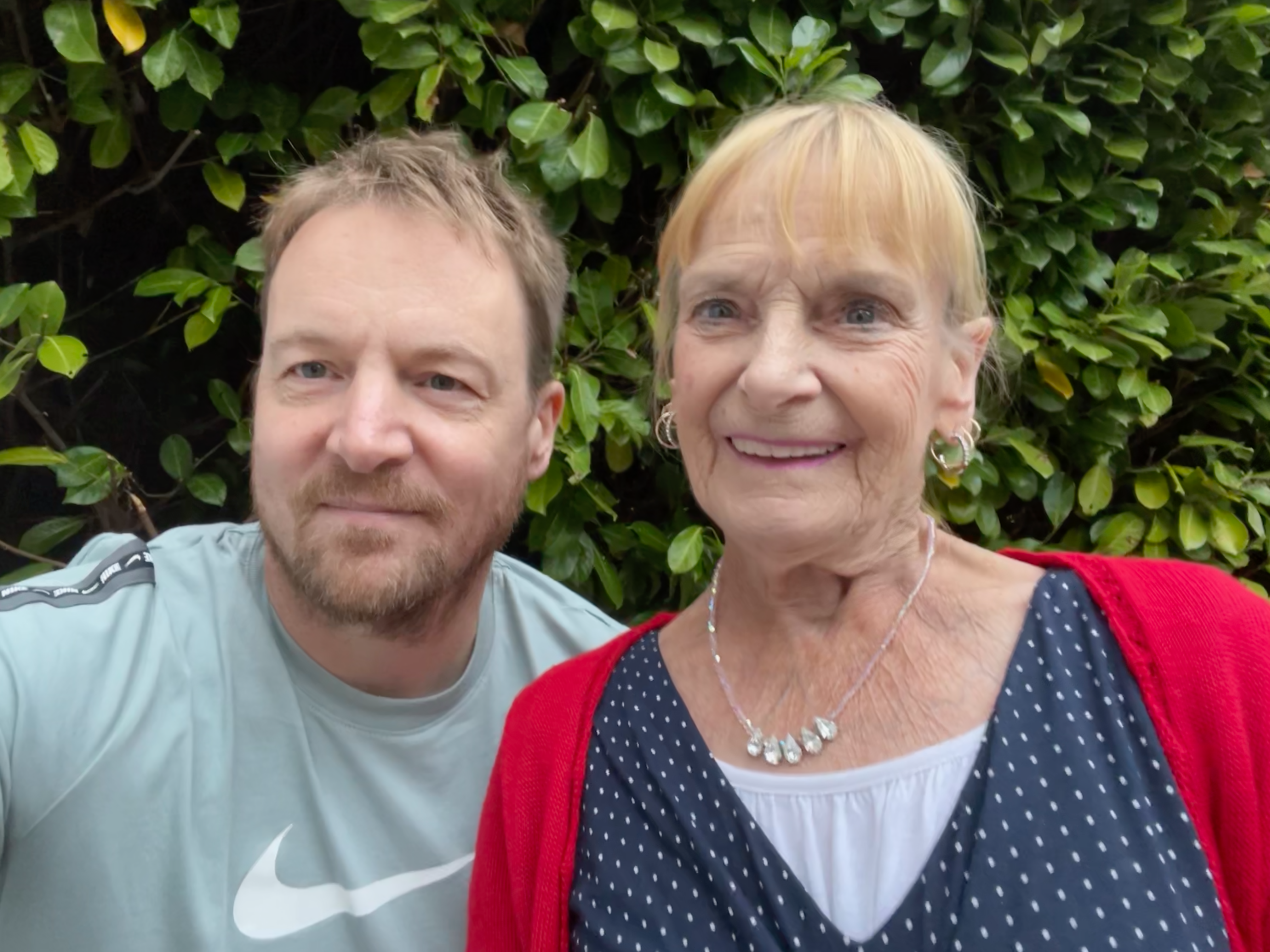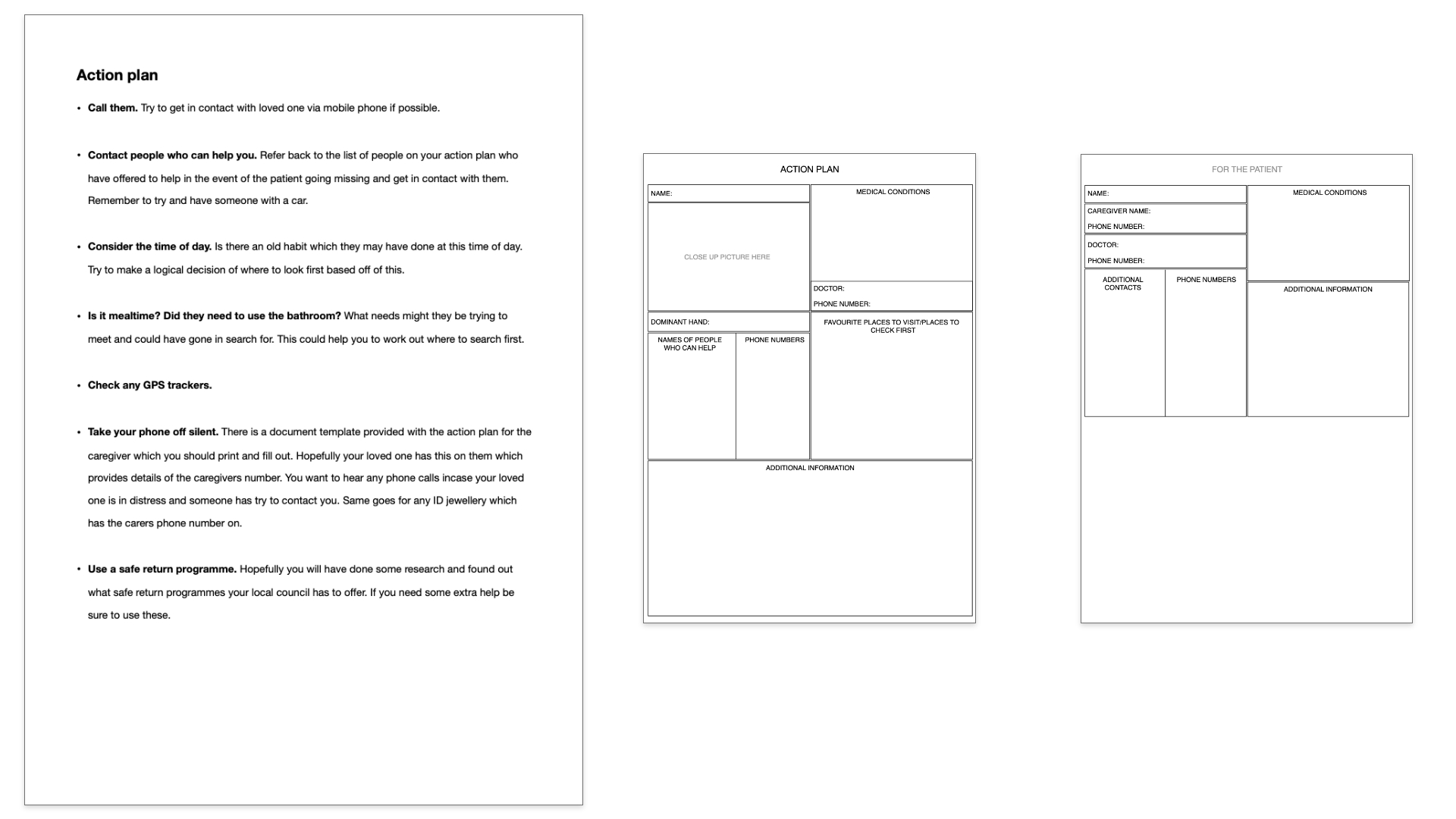One of the most nerve-racking things that can occur during your time as a dementia caregiver is the patient
going missing. It’s something that comes with a lot of worry and stress and it is important to understand why
this can happen, what can be done to prevent it and lastly, what to do when it does occur. There are ways to
minimise the chances of your loved one going missing however, with two-thirds of people with dementia
going missing during their diagnosis, it is essential that you are prepared for it if it does happen.
When your loved one goes missing it is due to a behaviour known as wandering. Memory loss in the patient
results in them getting lost in a familiar place and not being able to find their way home. Sometimes they may
not even realise they’re lost and therefore, not ask for help.
Patients can wander for many reasons and it is
important that you understand the reasons behind why your loved one may be wandering so that you can
work to solve the root causes and hopefully minimise the chances of it occurring again.
Importance of Routine
A lot of the time your loved one may be wandering due to a need not being met. This could be needing the
bathroom or being hungry. It is key that you have a routine in place as an indication of what is going to occur
next. Uncertainty in their day and not knowing when meal times are may cause them to wander to meet
these needs. Having set meal times, bathroom times and bedtimes will reduce uncertainty, and allow them to
be more relaxed in their home and less anxious that their needs aren’t going to be met. Following old
routines can also help. Stick to what they’re used to doing and follow their old habits. For example, if they
used to go to the shop at a certain time each week then plan to go there with them to reduce the risk of them
going there themselves and potentially getting lost.
Wanting to go ‘home’
Your loved one may be telling you that they want to go home. This may frustrate and confuse you as they
are sitting comfortably in the home they’ve lived in for years, however, they are usually referring to their
childhood home. A Lot of people may find comfort in their childhood home and feelings of stress and
agitation that come with dementia may lead them to wanting to seek out that comfort. In this situation simply
saying that they are at home or that they can’t go to see their childhood home isn’t going to help. It is just
going to continue to agitate them and confuse them. In this situation, it is ok to fib a little and it is something
that is used by caregivers called ‘therapeutic fibbing’. Tell them you’ll go in the morning because it’s dark
outside or say that the car is in the garage. You can also start to ask them questions about their childhood
and get to reminiscing which can be a distraction and will provide them with that comfort.
Maintaining safety
Having an action plan is the first step. This should be a series of documents which you keep close to you in
case your loved one goes missing. Include things such as:
• Name
• A list of medical conditions
• A list of people and their phone numbers who have offered to help you search for your loved one
(someone with a car is essential!)
Something to remember to help you search for them is that often they will turn in the direction of their
dominant hand so also make a note of this! Also, have a similar document for your loved one to take around
with them containing important information. Check out the action plan template which is available for you to
print and fill out. There is also one available for your loved one which they can keep on them if they find
themselves in distress.
As extra precautions or if your loved one has gone missing a few times now, consider getting a GPS tracker
of some sort. There are many forms to pick from so you will be able to find one suitable. You could also
purchase some ID jewellery for them to wear. Check our blog post on What are the best products for
dementia? for more information on your options for GPS trackers and ID jewellery. Check with your local
council for any safe return programmes they may have in place if you need some extra help. It is good to
have knowledge of this for any time you may need it.
The best thing you can do is prepare.
When wandering occurs it is still going to be stressful and you may struggle to think logically but having a
plan is essential and to give you some kind of guidance. Think about the most likely places your loved one
could have gone. Consider the time of day and whether they used to do something at this time which they
have gone in search of. As long as you are trying your hardest then it’s the best you can do. Don’t be so hard
on yourself and try to ignore the feelings telling you you’re not doing enough. Follow the action plan you have
set out for yourself and remember to ask for help!

Daren David Taylor
Creator of the Helping Mum app
Daren devotedly cared for his mother’s well-being, who was living with dementia. To assist himself and other caregivers in similar situations, he developed the “Helping Mum” app. This application serves as a tool for facilitating communication and sharing memories between caregivers and their parents. By creating the app, Daren aimed to provide a valuable resource for individuals caring for loved ones with dementia, enabling them to enhance their interactions and maintain a connection through shared memories.




